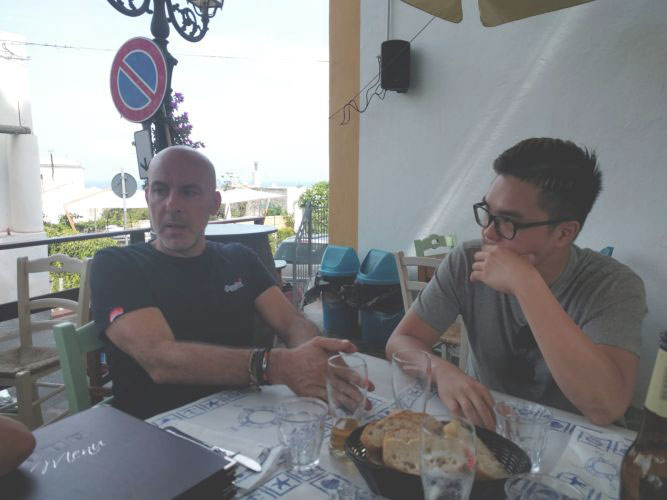Grad student presented twice at MSCX
Second-year PhD student Duy Anh Duong-Tran's presentation, "A Morphospace framework to assess functional flexibility", was based on research constructing a mathematical framework to quantify the human brain's capacity to reconfigure a rich repertoire of tasks. During MSCX, he also presented an entrepreneurial group project seeking to identify individual cognitive fingerprints at different level of consciousness. The project explored the question of whether individuals' functional connectomes are more similar given that they are in the same level of consciousness.
ABSTRACT:
Human uniquely possesses cognitive capability to harmonically balance individual differences within race-induced neuro-signatures. In recent years, neuroscience has progressed itself to an exciting, new era of publicly available datasets which contain valuable cognitive information describing the rich repertoire of task functional connetomes. Despite a plethora of literature depository, there is little consensus about functional flexibility existing between continuously integrated and segregated states. As commonality and individuality traits co-exist in human brains, the study of functional flexibility naturally leads to the primary question: do cognitive shifts between periods of integration and segregation intrinsically projected from individually cognitive signatures? If so, are these traits the direct consequences of functional networks' flexibility? Through the construction of morphospace, various cognitive traits are unraveled through the lenses of functional flexibility theory. Specifically, cognitive shifts within complex neuromodulatory systems are hypothesized and shown to be projected from functional networks' flexibility. Furthermore, leveraging prior results, significant correlations with various behavioral measures were also found.
One of the best-known schools on complex networks, MSCX delivers its promises of bringing together established professors, researchers and students all over the world. The school provides a unique exposure that fosters many research ideas among peers. The 5th MSCX was held September 1-8, 2018 in Sicily, Italy.
At MSCX, Dr. Joaquín Goñi also lead a seminar on Advances in Network Neuroscience.

